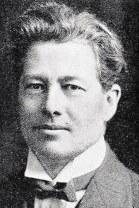Aotearoa is the Māori name for New Zealand. It was originally used by Māori people in reference to only the North Island but, since the late 19th century, the word has come to refer to the country as a whole, including the South Island. Several meanings have been proposed for the name; the most popular meaning usually given is "land of the long white cloud", or variations thereof.

Sir Edmund Percival Hillary was a New Zealand mountaineer, explorer, and philanthropist. On 29 May 1953, Hillary and Nepalese Sherpa mountaineer Tenzing Norgay became the first climbers confirmed to have reached the summit of Mount Everest. They were part of the ninth British expedition to Everest, led by John Hunt. From 1985 to 1988 he served as New Zealand's High Commissioner to India and Bangladesh and concurrently as Ambassador to Nepal.

Michael King was a New Zealand popular historian, author, and biographer. He wrote or edited over 30 books on New Zealand topics, including the best-selling Penguin History of New Zealand, which was the most popular New Zealand book of 2004.

The 1853 New Zealand general election was a nationwide vote to determine the shape of the New Zealand Parliament's 1st term. It was the first national election ever held in New Zealand, although Parliament did not yet have full authority to govern the colony, which was part of the British Empire at that time.
Geoffrey "Geoff" William Fleetwood Thompson is a former New Zealand politician of the National Party.

The Dictionary of New Zealand Biography (DNZB) is an encyclopedia or biographical dictionary containing biographies of over 3,000 deceased New Zealanders. It was first published as a series of print volumes from 1990 to 2000, and then on a website from 2002. The dictionary superseded An Encyclopaedia of New Zealand of 1966, which had 900 biographies. The dictionary is managed by the Ministry for Culture and Heritage of the Government of New Zealand. An earlier work of the same name in two volumes, published in 1940 by Guy Scholefield with government assistance, is unrelated.

James Thorn was a New Zealand politician and trade unionist. He was an organiser and candidate for the Independent Political Labour League, Social Democratic Party then the Labour Party.

Eden, a former New Zealand parliamentary electorate, lay in the general area of the suburb of Mount Eden in the city of Auckland.
Egmont is a former New Zealand electorate, in south Taranaki. It existed from 1871 to 1978.
Dunstan was a parliamentary electorate in the Otago region of New Zealand, from 1871 to 1890.
Gladstone was a parliamentary electorate in the Canterbury region of New Zealand, from 1866 to 1890.
Marsden is a former parliamentary electorate, in the Whangarei District and in the Northland Region of New Zealand.
Hampden was a parliamentary electorate in the Otago region of New Zealand, from 1861 to 1870. The electorate was centred on the town of Hampden.
Picton was a parliamentary electorate in the Marlborough Region of New Zealand, from 1861 to 1887.
Suburbs of Auckland was a parliamentary electorate in Auckland, New Zealand from 1853 to 1860.

John Thomas "Tom" Paul was a New Zealand compositor, trade unionist, politician, editor, journalist and censor.
Guy Hardy Scholefield was a New Zealand journalist, historian, archivist, librarian and editor, known primarily as the compiler of the 1940 version of the Dictionary of New Zealand Biography. He was born in Dunedin, Otago, New Zealand on 17 June 1877, and died in Wellington on 19 July 1963.
The 1872 Waikato by-election was a by-election held on 1 March 1872 in the Waikato electorate in the Waikato region of New Zealand during the 5th New Zealand Parliament.
The 1872 Rodney by-election was a by-election held on 16 March 1872 in the Rodney electorate in the Auckland region of New Zealand during the 5th New Zealand Parliament.








